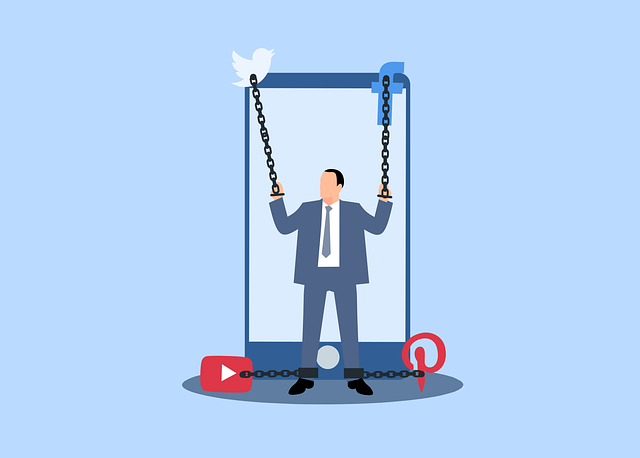Longmont Child Abuse Therapy (LCAT) leverages community outreach to create safe spaces, offering interactive workshops and support groups that teach conflict resolution, emotional regulation, and self-care. Their strategic partnerships with schools, community centers, and local organizations ensure culturally sensitive programs addressing diverse needs. LCAT employs evidence-based practices like Mindfulness Meditation and Mental Health Policy Analysis, and conducts public awareness campaigns to prevent child abuse. They measure program impact through feedback, behavioral tracking, and mental health improvements, ensuring sustainability via collaborative resource sharing.
Longmont Child Abuse Therapy has recognized the power of community outreach in addressing child trauma. This article explores strategic implementation of such programs, offering a roadmap for organizations aiming to create lasting change. From understanding the local need to building partnerships and measuring impact, we delve into essential components ensuring effective outreach. Discover how collaborative efforts can transform communities, fostering resilience and healing among vulnerable populations.
- Understanding Community Outreach for Longmont Child Abuse Therapy
- Strategies for Effective Program Implementation
- Building Partnerships and Engaging the Local Community
- Measuring Impact and Ensuring Sustainability
Understanding Community Outreach for Longmont Child Abuse Therapy

In the context of Longmont Child Abuse Therapy, community outreach programs play a pivotal role in fostering healing and growth among affected individuals. These initiatives aim to create safe spaces where children and adults can learn essential skills like conflict resolution techniques, emotional regulation strategies, and self-care practices. By integrating these programs into the fabric of the community, Longmont Child Abuse Therapy seeks to break down barriers and reduce stigma associated with seeking help, ensuring a more supportive environment for healing.
Community outreach goes beyond mere service provision; it empowers individuals to take charge of their well-being and build resilience. Through interactive workshops, educational sessions, and peer support groups, participants gain tools to navigate challenges effectively. The integration of emotional regulation techniques, for instance, equips individuals with the ability to manage stress and cope with traumatic experiences, while self-care practices promote holistic healing and overall mental health.
Strategies for Effective Program Implementation

Implementing successful community outreach programs requires a strategic approach tailored to address local needs. At Longmont Child Abuse Therapy, we’ve found that engaging stakeholders and fostering partnerships is key. Collaborating with schools, community centers, and local organizations allows for a comprehensive understanding of the challenges faced by the population you aim to serve. This collaborative process ensures that program activities are relevant, accessible, and culturally sensitive, addressing issues like mental health disparities, especially in diverse communities.
Incorporating evidence-based practices is another vital strategy. Whether it’s integrating Mindfulness Meditation techniques into workshops or advocating for Mental Health Policy Analysis and Advocacy at the local level, these approaches empower community members with tools to enhance their well-being. Cultural Sensitivity in Mental Healthcare Practice is paramount, ensuring that services are inclusive and tailored to diverse backgrounds, fostering trust and encouraging participation.
Building Partnerships and Engaging the Local Community

Building strong partnerships with local organizations is a cornerstone of successful community outreach programs, especially when addressing sensitive issues like child abuse. Longmont Child Abuse Therapy understands the importance of collaboration and has formed alliances with schools, community centers, and faith-based groups to create a network of support. By engaging these entities, the program can reach a wider audience and offer tailored services that cater to diverse needs. This collaborative approach not only amplifies impact but also fosters trust and ensures that resources are utilized effectively.
Engaging the local community is another vital aspect of community outreach. Public Awareness Campaigns Development strategies, such as workshops, seminars, and interactive sessions, play a crucial role in educating residents about recognizing and reporting child abuse. These initiatives focus on building inner strength and mood management skills among both children and caregivers, empowering them to navigate challenging situations with resilience. By actively involving the community, Longmont Child Abuse Therapy creates a culture of awareness and care, ultimately contributing to a safer and more supportive environment for all its members.
Measuring Impact and Ensuring Sustainability

Measuring the impact of community outreach programs is a critical step to ensure their effectiveness and sustainability. Organizations like Longmont Child Abuse Therapy (LCAT) employ various methods to assess how their initiatives resonate with the target population. This includes gathering feedback from participants, tracking behavioral changes, and monitoring improvements in key areas such as mental health and stress management. By quantifying these outcomes, LCAT can identify what’s working and make data-driven adjustments to better serve their community.
Sustainability is another vital aspect. LCAT recognizes that public awareness campaigns development and Trauma Support Services require ongoing commitment and resources. They foster partnerships with local organizations, businesses, and schools to share responsibilities and costs, ensuring long-term viability. This collaborative approach not only strengthens the impact of these programs but also encourages community engagement in stress management initiatives, ultimately contributing to a healthier and more resilient population.
Implementing community outreach programs, as exemplified by Longmont Child Abuse Therapy’s initiatives, requires a strategic approach. By fostering partnerships and engaging the local community, organizations can effectively address issues at hand. Measuring impact and ensuring sustainability are crucial steps to gauge success and make necessary adjustments. These strategies not only enhance service accessibility but also create a lasting positive change in the lives of those affected by abuse.














